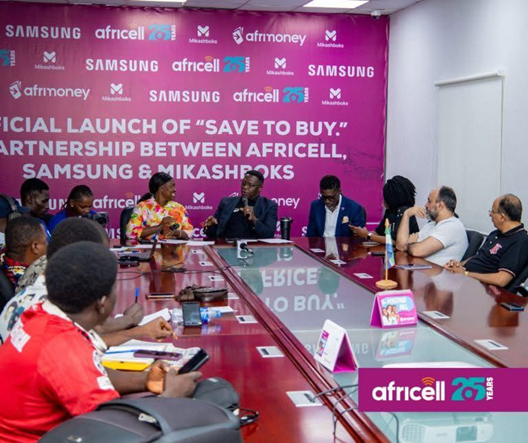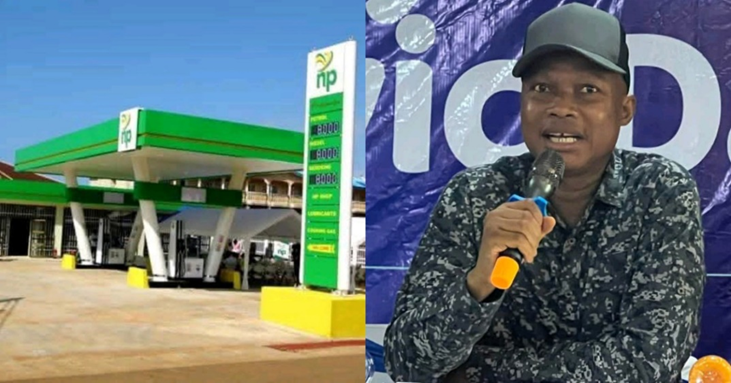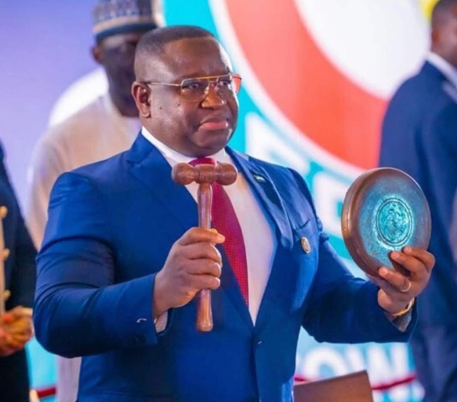By Mariama Bundu
In a bold move to make digital connectivity more affordable and accessible for everyday Sierra Leoneans, telecommunications giant Africell has teamed up with fintech platform MiKashBoks to launch an innovative savings-based scheme designed to help customers gradually purchase Samsung smartphones without the burden of upfront payments or credit.
The initiative—called “Save to Buy”—was officially launched at Africell’s headquarters on Pivot Street in Wilberforce, Freetown, on Wednesday, July 30. The program is part of a broader campaign by both companies to promote financial inclusion, digital literacy, and economic empowerment, particularly among low-income earners and underserved communities.
Unlike traditional phone financing or installment plans, Save to Buy offers a debt-free pathway to smartphone ownership, allowing individuals to save incrementally over time until they can afford their desired device.
At the launch event, Africell’s Chief Corporate Affairs Officer, Joe Abass Bangura, emphasized that the modern digital economy depends on access to smartphones—not just as communication tools, but as gateways to education, entrepreneurship, and public services.
“Smartphones are no longer a luxury—they are a necessity,” Bangura said. “Whether you are a student, small business owner, farmer, or civil servant, access to a smartphone is now essential to fully participate in today’s digital world.”
He explained that Africell, as the exclusive distributor of Samsung smartphones in Sierra Leone, sees the Save to Buy initiative as an extension of its commitment to digital inclusion.
“By removing the barrier of upfront cost, we are creating a clear and affordable pathway for more Sierra Leoneans to connect, learn, trade, and thrive,” he added.
MiKashBoks, a growing fintech player focused on goal-based savings and financial literacy, is the technology partner powering the initiative. Rashidatu Sankoh, the company’s Sales and Marketing Manager, explained how the scheme works.
“Participants can start saving with as little as Le 50 per week,” she said. “There are no interest rates, no loans, and no penalties—just a disciplined savings plan designed around your financial ability and personal goals.”
Through the MiKashBoks app, users can browse a catalog of Samsung smartphones, select their preferred model, and choose a savings schedule that suits their income flow. Whether weekly or monthly, the contributions are automatically tracked and recorded through a user-friendly interface.
“This is particularly transformative for women, youth, and informal workers who often lack access to formal financial services,” Sankoh noted. “They now have a secure, transparent way to save for something meaningful—without relying on borrowing or predatory lending.”
One of the defining features of the Save to Buy program is its full integration with AfriMoney, Africell’s mobile money platform. This allows users to save directly from their digital wallets with minimal friction.
According to John Konteh, Marketing Director at AfriMoney, the process is intentionally designed to be mobile-first.
“With just a simple USSD code—*352#—or by using the MiKashBoks app, anyone can start saving today,” Konteh explained. “You don’t need a bank account, you don’t need to fill forms, and you don’t even need to visit a retail outlet.”
He emphasized that this digital-first approach aligns with the government’s wider vision for a cashless economy and digitally enabled public service delivery.
While the immediate goal is to increase smartphone ownership, both Africell and MiKashBoks see Save to Buy as a long-term tool for broader financial education and empowerment.
“This is not just about phones—it’s about economic participation,” said Bangura. “Once someone owns a smartphone, they are connected to mobile banking, e-learning platforms, job portals, and health information systems. The ripple effect is powerful.”
The program also reinforces Sierra Leone’s national digital development agenda, which prioritizes access to affordable technology as a driver of inclusive growth.
Africell and MiKashBoks say they are already exploring ways to expand the savings model to include other digital products such as tablets, Wi-Fi routers, and solar chargers in the near future.
Both companies affirmed that customer feedback and community engagement will shape the program’s evolution. Future plans include promotional incentives, training for first-time smartphone users, and partnerships with civil society groups to reach rural populations.
“This isn’t just a product launch—it’s a movement toward digital inclusion for all,” Sankoh concluded.
As Save to Buy rolls out nationwide, it promises to transform the way Sierra Leoneans access technology—one savings milestone at a time.



